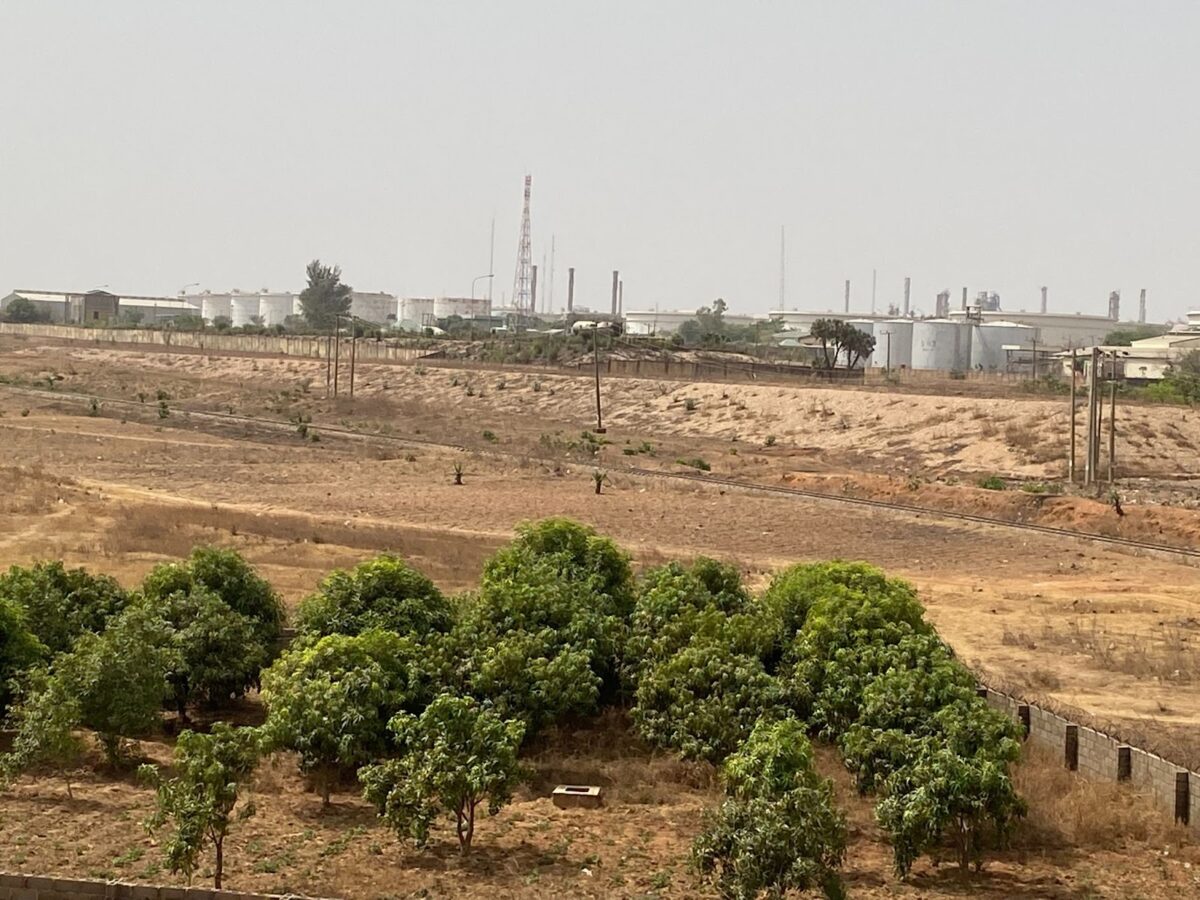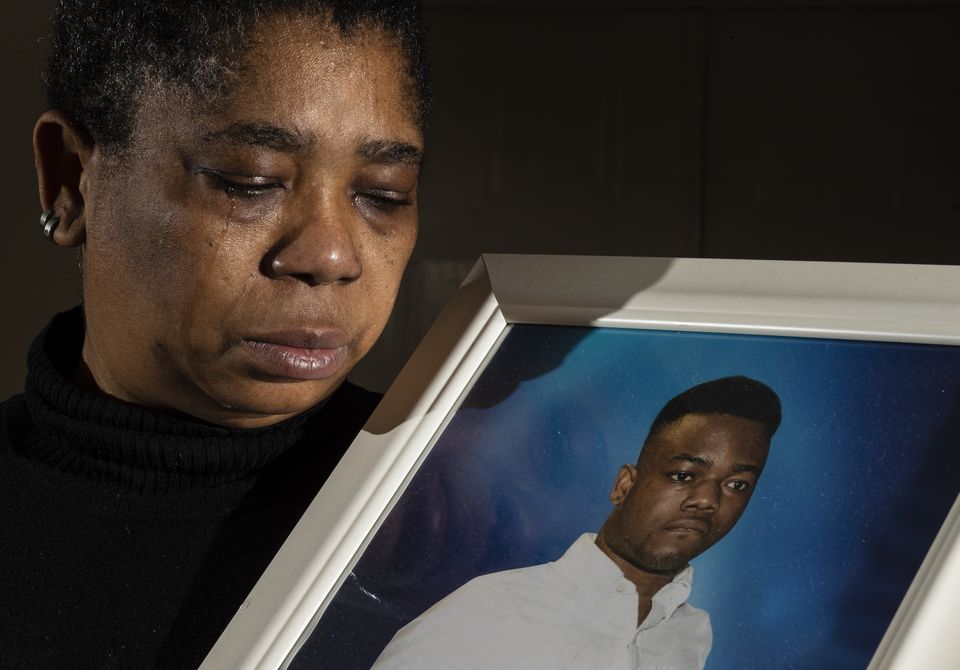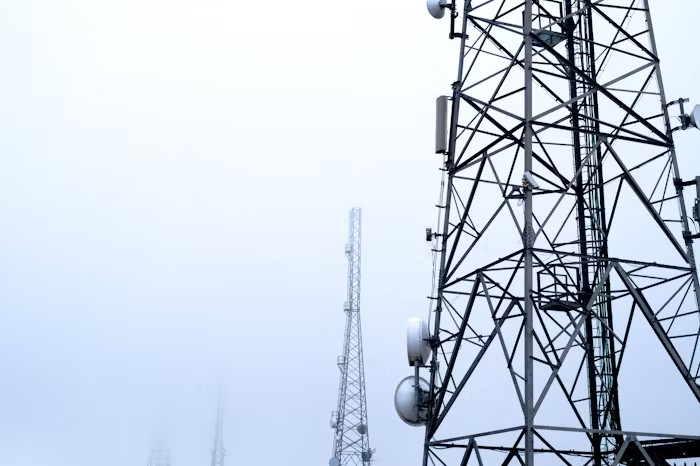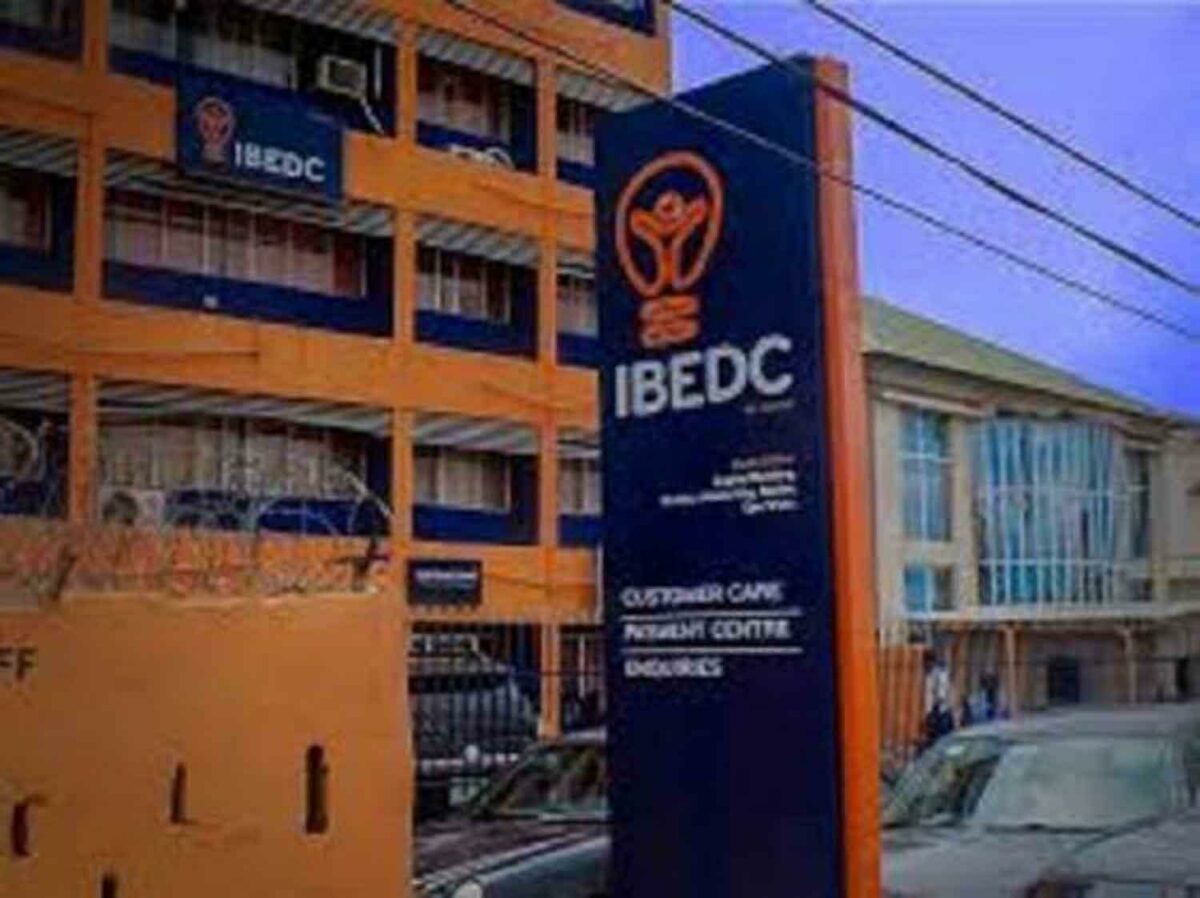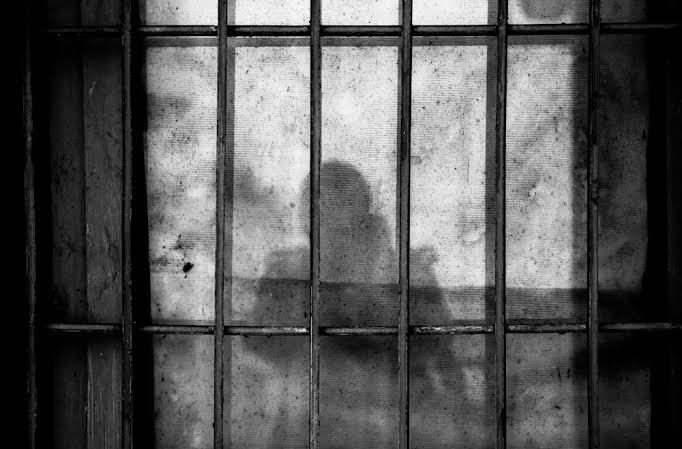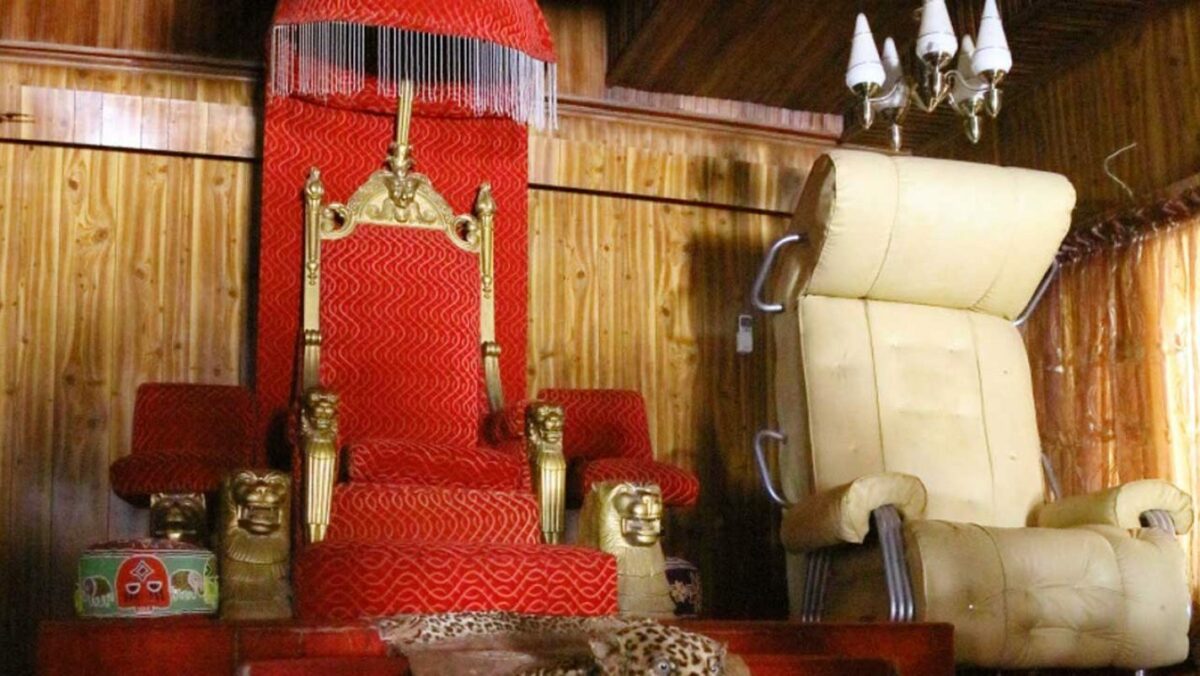KADUNA, NIGERIA
For more than 50 years now, Nigeria’s economic mainstay has been crude oil, but oil wealth comes at a great cost: it rivals citizens’ lives and devastates the ecosystem without substantive restoration by the major players. Investigative journalist Gabriel Ogunjobi reports the activities around oil refining in Nigeria, the compromises and stakes.
Split into three, this third part unveils the inaction of the state-managed Kaduna refinery despite far-reaching effects of oil spills on the farmlands and water source of two communities already ravaged by bandits.
Garuba Usman beamed his face and a contagious smile came from it. Other times, a reminder of his past shrank his face, dampening the whole mood. The 70-year-old is one rare Fulani indigene of the old Kaduna, whose occupation is farming. He said he was never into cattle rearing, the most lucrative business of his kinsmen.
READ ALSO: Odimodi, Delta Community Where Oil Exploration Destroyed Fishing
Even Nigeria’s President Muhammadu Buhari, who hails from the same town as Usman, Daura, keeps a ranch for his herds. But farming, which Usman knows how to do best, suddenly turned horrible last year. The reason, he said, was due to an oil spill from the refinery less than a kilometre from his farmland.
He is one of the 15 farmers who have waited for a year to be compensated by the Kaduna Refining and Petrochemical Company (KRPC). Kaduna refinery, like others, has been shut down since 2016, but the residents of Kapam community believe oil residue in pipelines spilled on their land during an equipment failure.
“The people gathered names of farmers affected, but to the best of my knowledge, none of them has been compensated,” said Joseph David, the youth leader on the frontline of the advocacy for the community.
After 40 years of living in Kapam, Usman raised a family and built a modest Bungalow from the profits he made cultivating vegetables and crops like rice and cassava.
Before he joined me under the mango tree in his farm that afternoon, he, alongside his youngest son, was pilling cassava streaks. At his rear were beds of vegetables germinating brightly in the scorching sunshine.
In 2021, the farmer said, he had his lowest harvest in the recent years. Worse still, there were high expectations for that year’s farming. He has hoped to get his son a wife from the proceeds. When that could not be realised, he went borrowing.
“I barely harvested 5 bags of rice last year,” he stated as his luminous gesture began to fade.
READ ALSO: OAGF Report Reveals NNPC Can’t Account for N663bn, 107m Barrels of Crude Oil
Usman said he could harvest up to 30 bags of rice from his farm in a good season
Kaduna has been in a dire strait for many years because of attacks by non-state armed groups in the agrarian south of the state. In 2021 alone, no fewer than 1,192 lost their lives to armed bandits and other forms of violence in the state, and a total of 3,348 persons were kidnapped in the same period.
However, the refinery caused trouble for the two agrarian communities flanking KRPC on the left and right: Kapam and Rido. Usman epitomises the parlous experience of the people, which led to a pent-up anger among the youths.
When KADVIS accompanied the Kaduna State Urban Planning Development Agency (KASUDA) to demolish some houses on the borderline of the refinery, the people protested. KADVIS matched the protest with brute force, killing one of the protesters.
The community chairman, the elder brother of the deceased, refused to speak on the incident, but Adamu Alkali, another protester, narrated how he survived the scuffle by sheer luck.
After the demolition of over 10 buildings on March 28, Alkali was thrown into the vigilante’s van and driven away bloodied. “They left me for dead in one hospital,” he claimed, threatening a lawsuit against KASUDA, upon full recovery.
At that moment he spoke, one of his eyes was bloodshot, and the other sealed. His occiput was bruised as the heavy-stomached man writhed in pain.
The KPRC denied sending KADVIS on a bloody demolition, but the community said the management has a history of not taking responsibility whenever it errs.
ABANDONED WITH A PLAGUE
The inhabitants of Rido are at the mercy of armed gangs using forests as hideouts. Their potable water has also been snatched. No thanks to the refinery, said Jonathan David, who stays at the railway quarters in Rido.
The length and breadth of this community with more than 3000 inhabitants, according to the 2006 national census, is remote, and the adjoining roads to the federal highway are bad. As if to mysteriously preserve the unwholesome history of its existence, livelihood inside the railway quarters, at the exit of the community, is particularly squalid.
In January 1980, a borehole water system was launched alongside the government quarters built opposite the KPRC. When the minister of petroleum inspected the housing project, he disapproved of the idea that people should reside there because of the environmental hazard the refinery would pose.
Through this tunnel, wastewater is released from the refinery into the railway quarters, contaminating the locals’ groundwater source
The remaining buildings were not completed, but the Nigerian Railway Corporation (NRC) took over the finished blocks for the temporary lodging of railway staff since there were rail tracks transporting crude from Rivers State to the Kaduna refinery.
Today, over a hundred people – NRC staff and others – live there with a shortage of potable water.
A well abandoned at the railway quarters after oil was perceived inside
“Each time there is an equipment failure or whatever, we see oil flowing out of the outlets into our farms,” non-staff resident David noted. “We started noticing traces of oil in our well.”
According to him, the borehole wasn’t working when he moved into the quarters in 2006. So, contaminated wells were their source of water.
A forensic research conducted by the trio of Louis Buggu, Funmilayo Yusufu-Alfa and Abigail Abenu for the Ghana Journal in 2020 found out that the streams and other sources of water linked to the Rido river were contaminated by effluents.
Ten water samples had been collected and tested for arsenic (As), cadmium (Cd), chromium (Cr), copper (Cu), iron (Fe), lead (Pb), manganese (Mn), mercury (Hg), nickel (Ni) and zinc (Zn).
The results revealed that in the dry season, six heavy metals, namely As, Cd, Cu, Mn, Ni and Zn, had mean values higher after the point of effluent discharge, while Cr, Fe and Pb had lower values and Hg was not detected.
In the wet season, all the heavy metals tested, except Hg, increased in values after the point of effluent discharge. In dry and wet seasons, the values of As, Cd, Fe, Mn, Ni and Pb after the discharge point were greater than the maximum tolerable limits set by the Standard Organisation of Nigeria (SON) and the World Health Organisation (WHO). The values recorded for Zn and Cu in dry and wet seasons were below the limit set by the Standard Organisation of Nigeria (SON) and the World Health Organisation (WHO), but the value of Cr was lower than the maximum tolerable limit only in the dry season. The contamination of the river with heavy metals poses a grave danger to human health, as its water is used for diverse purposes.
The researchers recommended that the wastewater treatment plant of KRPC be rehabilitated and the wastewater pre-treated before it is discharged into the river.
The railway quarters bellies two wastewater outlets from the refinery, making the people direct victims of oil contamination. “When the problem persisted, we shut down the wells and I personally revived this borehole with my own money. Now, we contribute to treat it whenever we detect the water smells,” said one of the residents.
The two contaminated wells are about five meters from the outlet, and the borehole is even closer. With the well abandoned, the major source of water is the borehole, whose purity is also erratic.
The other source is at the refinery military lodge off the rail link. They are not the only people depending on the tank. Neighbouring Ungwan Bulus fetches there too. Bulus was in the news on March 31. It was attacked two days after a train was hijacked and 20 people were kidnapped.
A railway staffer, who did not want to be named, said, “We are abandoned here,” bemoaning risks to their lives by the water they drink and the marauding bandits in their forest.
Garba Deen Muhammad, the NNPC spokesman, didn’t answer calls to his line for an interview over the contamination of Kaduna communities by the refinery.
With Nigeria’s regulatory failure on oil refineries, the nation’s old heritages – farming and fishing – are at a low ebb. The lack of environmental remediation across parts of Nigeria where oil is either explored or refined, has advanced the advocacy to halt oil processing in the country. Whilst the government is yet to be accountable for the ripple effects of crude oil, communities on the fence lines of refineries suffer. There are peculiar instances of sea surge and difficulty fishing in Lagos. Across the Niger Delta, the overwhelming menace is the lack of standard environmental cleanup, sometimes leading to sudden or steady deaths, while Kaduna communities reek of soil and groundwater contamination.
The lives lost over land tussles between the management of the Kaduna refinery and local communities in Kaduna were like salt to the injury of the people whose farm yields had been ruined by refinery wastewater. All these devastating impacts have made ecological experts worry whether the crude oil in Nigeria is worth the risks.
This report was funded under Health of Mother Earth Foundation’s fossil politics programme
Subscribe
Be the first to receive special investigative reports and features in your inbox.


